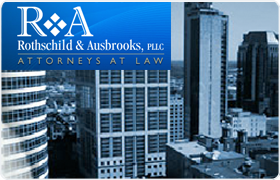Dickson Bankruptcy & Debt Lawyer, Tennessee
Sponsored Law Firm
-
 x
x

Click For More Info:
-
Rothschild & Ausbrooks, PLLC
1222 16th Ave. South, Suite 12 Nashville, TN 37212» view mapBankruptcy Filing, Chapter 7, Chapter 13 You Are Not Alone. We Can Help.
Our law firm encourages communication. We respond to calls and e-mails promptly. This is your case, and you will be involved every step of the way.
800-966-8531
Blake Kruse
Criminal, Bankruptcy, Banking & Finance, Credit & Debt
Status: In Good Standing Licensed: 16 Years
Joseph Christopher Hall
Administrative Law, Reorganization, Natural Resources, Products Liability
Status: In Good Standing Licensed: 15 Years
Daniel Small
Administrative Law, Dispute Resolution, Federal Appellate Practice, Bankruptcy
Status: In Good Standing Licensed: 47 Years
Spencer Hamlin
Criminal, Juvenile Law, Bankruptcy, Banking & Finance
Status: In Good Standing Licensed: 13 Years

 Mary Ausbrooks Nashville, TN
Mary Ausbrooks Nashville, TN Contact UsCall or Email
Contact UsCall or Email LinkedIn
LinkedIn
